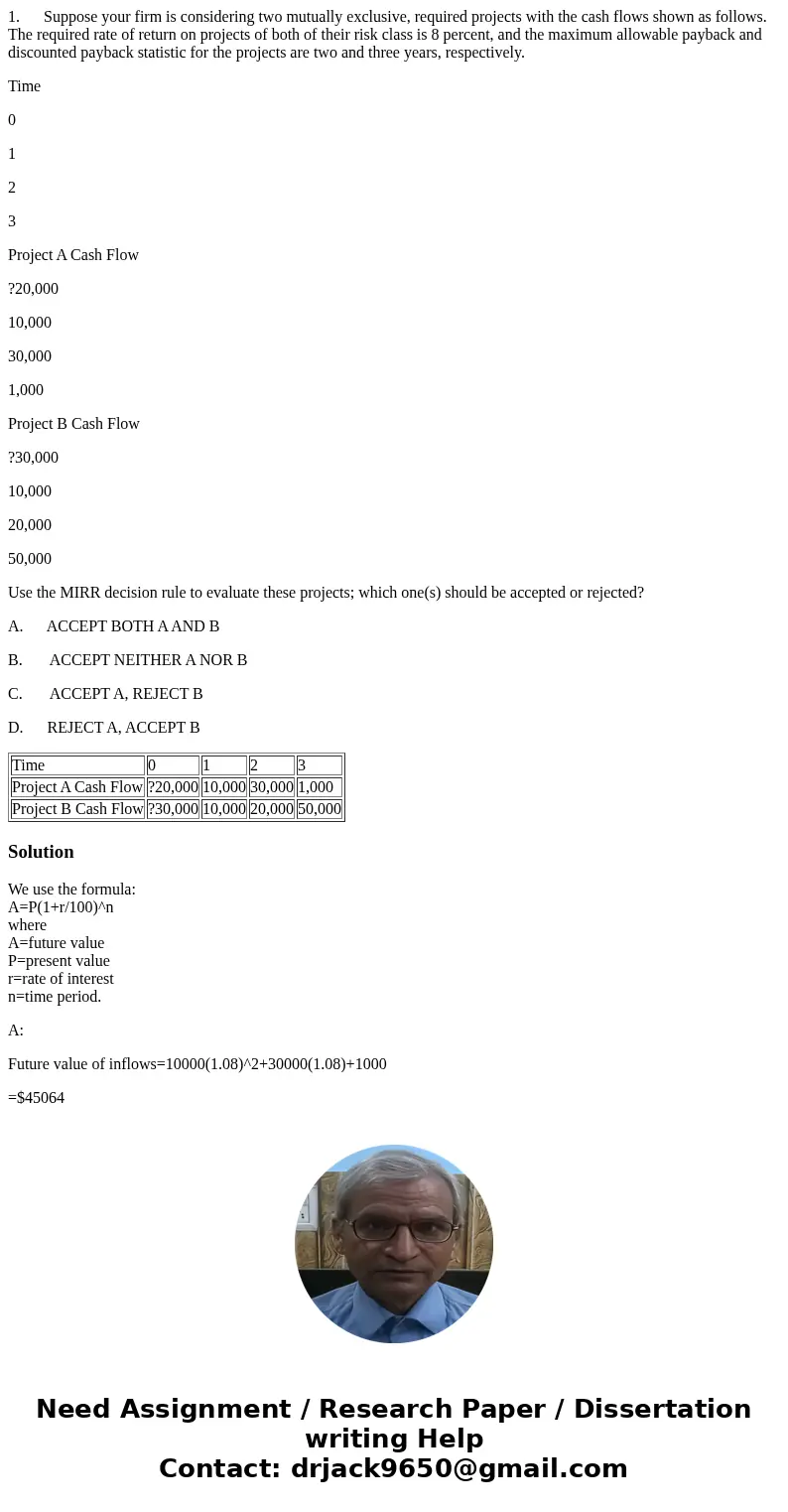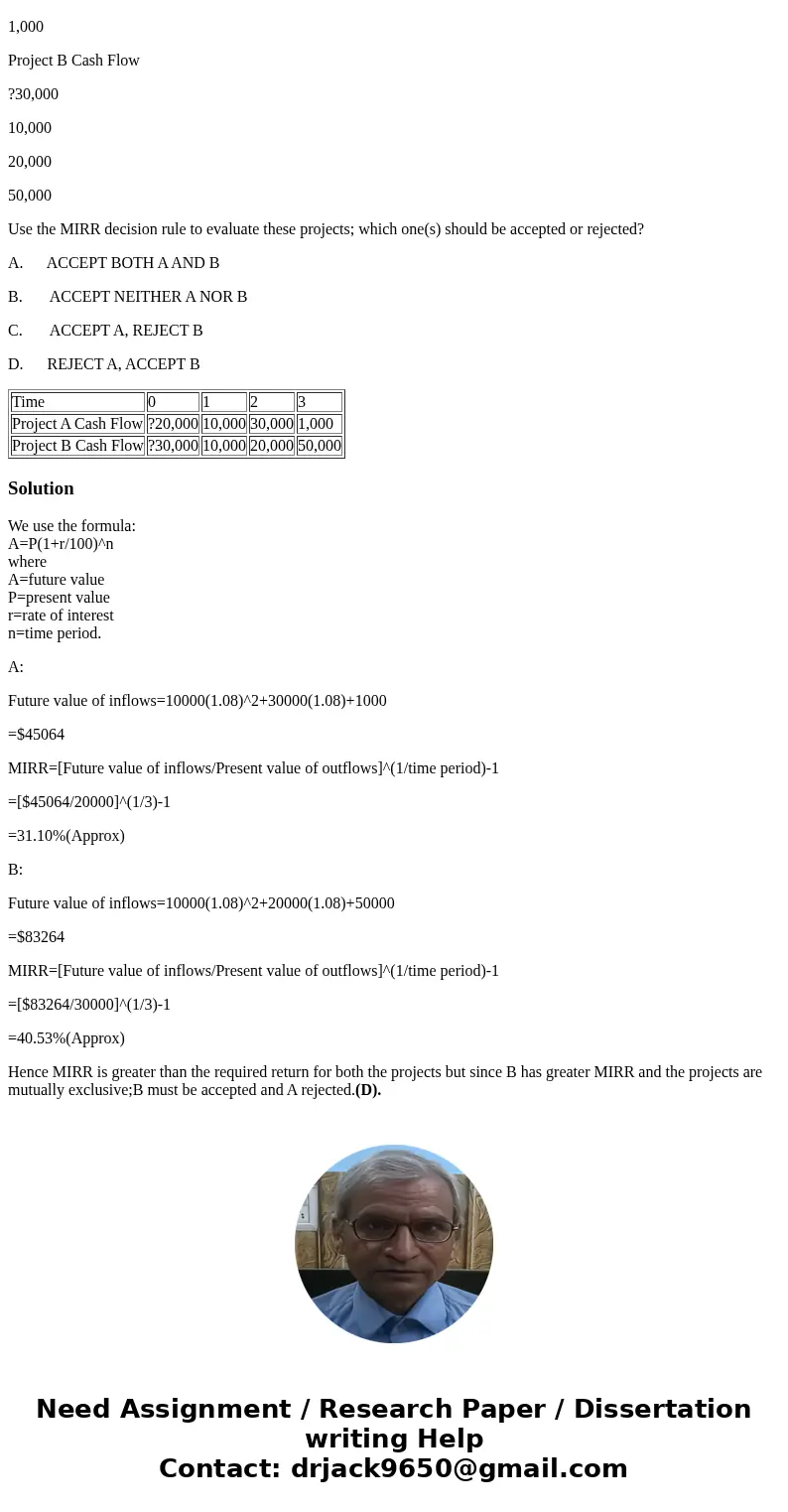1 Suppose your firm is considering two mutually exclusive re
1. Suppose your firm is considering two mutually exclusive, required projects with the cash flows shown as follows. The required rate of return on projects of both of their risk class is 8 percent, and the maximum allowable payback and discounted payback statistic for the projects are two and three years, respectively.
Time
0
1
2
3
Project A Cash Flow
?20,000
10,000
30,000
1,000
Project B Cash Flow
?30,000
10,000
20,000
50,000
Use the MIRR decision rule to evaluate these projects; which one(s) should be accepted or rejected?
A. ACCEPT BOTH A AND B
B. ACCEPT NEITHER A NOR B
C. ACCEPT A, REJECT B
D. REJECT A, ACCEPT B
| Time | 0 | 1 | 2 | 3 |
| Project A Cash Flow | ?20,000 | 10,000 | 30,000 | 1,000 |
| Project B Cash Flow | ?30,000 | 10,000 | 20,000 | 50,000 |
Solution
We use the formula:
A=P(1+r/100)^n
where
A=future value
P=present value
r=rate of interest
n=time period.
A:
Future value of inflows=10000(1.08)^2+30000(1.08)+1000
=$45064
MIRR=[Future value of inflows/Present value of outflows]^(1/time period)-1
=[$45064/20000]^(1/3)-1
=31.10%(Approx)
B:
Future value of inflows=10000(1.08)^2+20000(1.08)+50000
=$83264
MIRR=[Future value of inflows/Present value of outflows]^(1/time period)-1
=[$83264/30000]^(1/3)-1
=40.53%(Approx)
Hence MIRR is greater than the required return for both the projects but since B has greater MIRR and the projects are mutually exclusive;B must be accepted and A rejected.(D).


 Homework Sourse
Homework Sourse